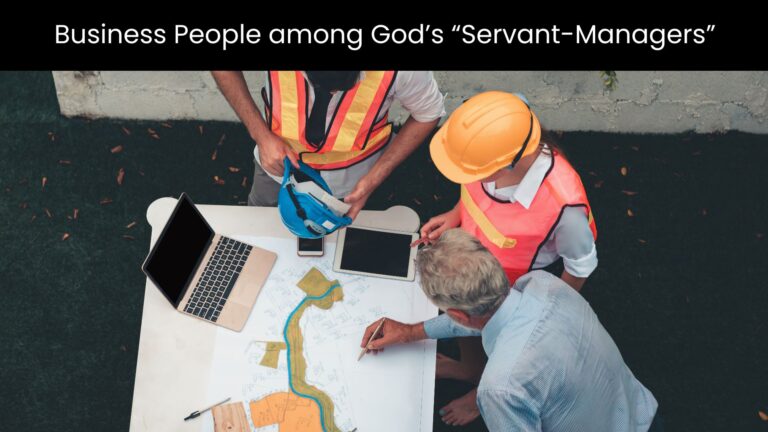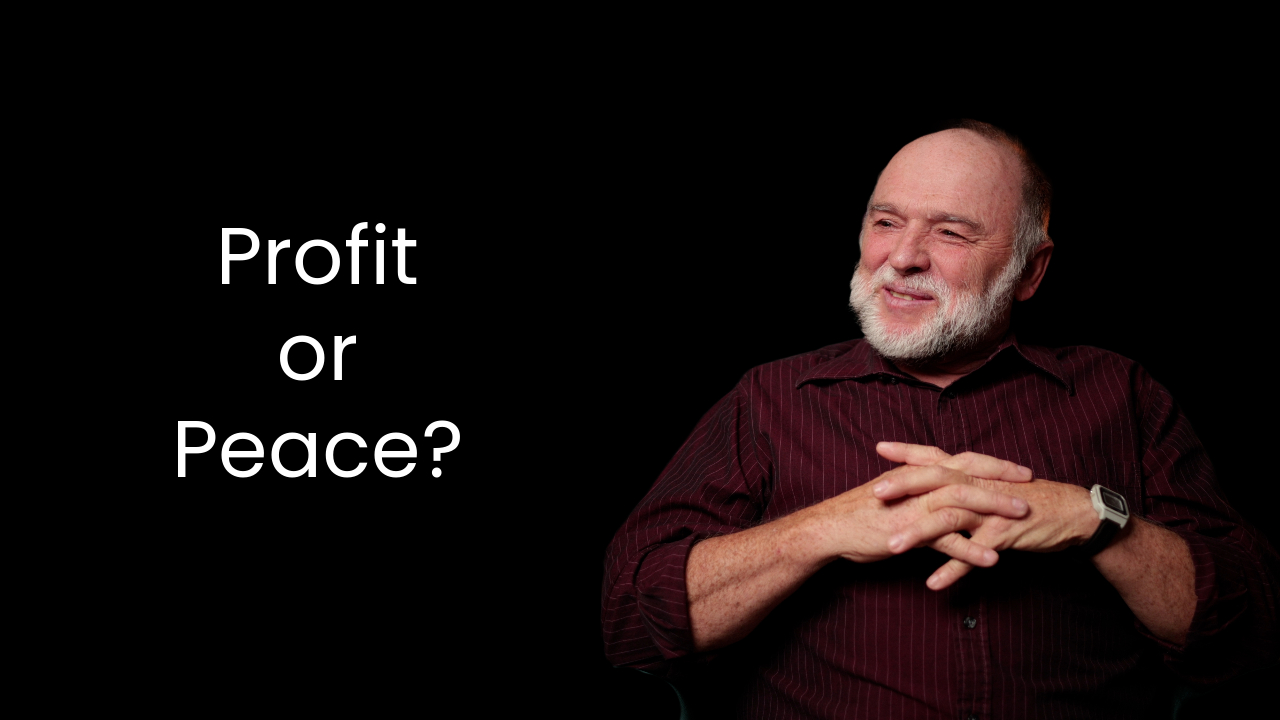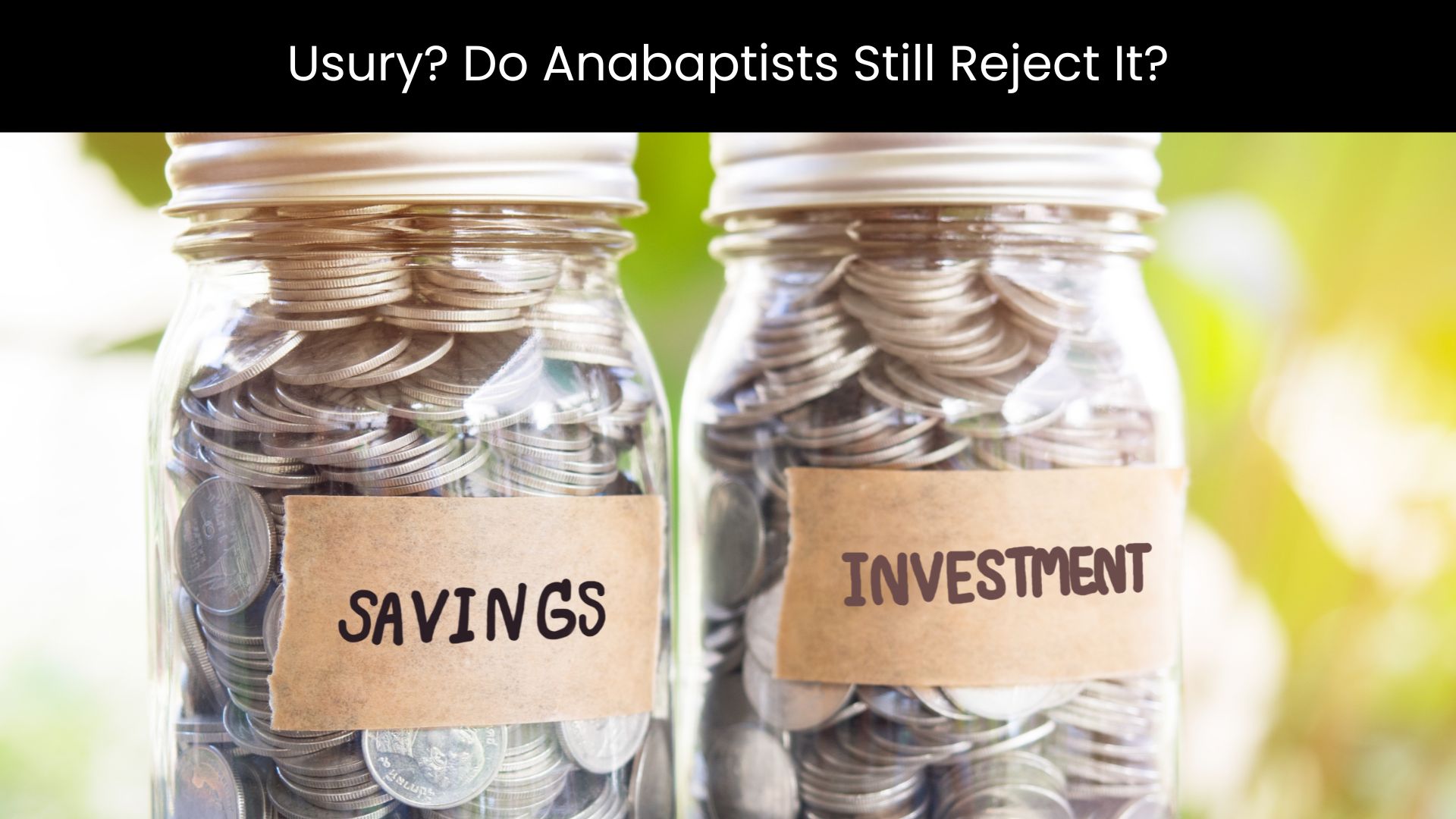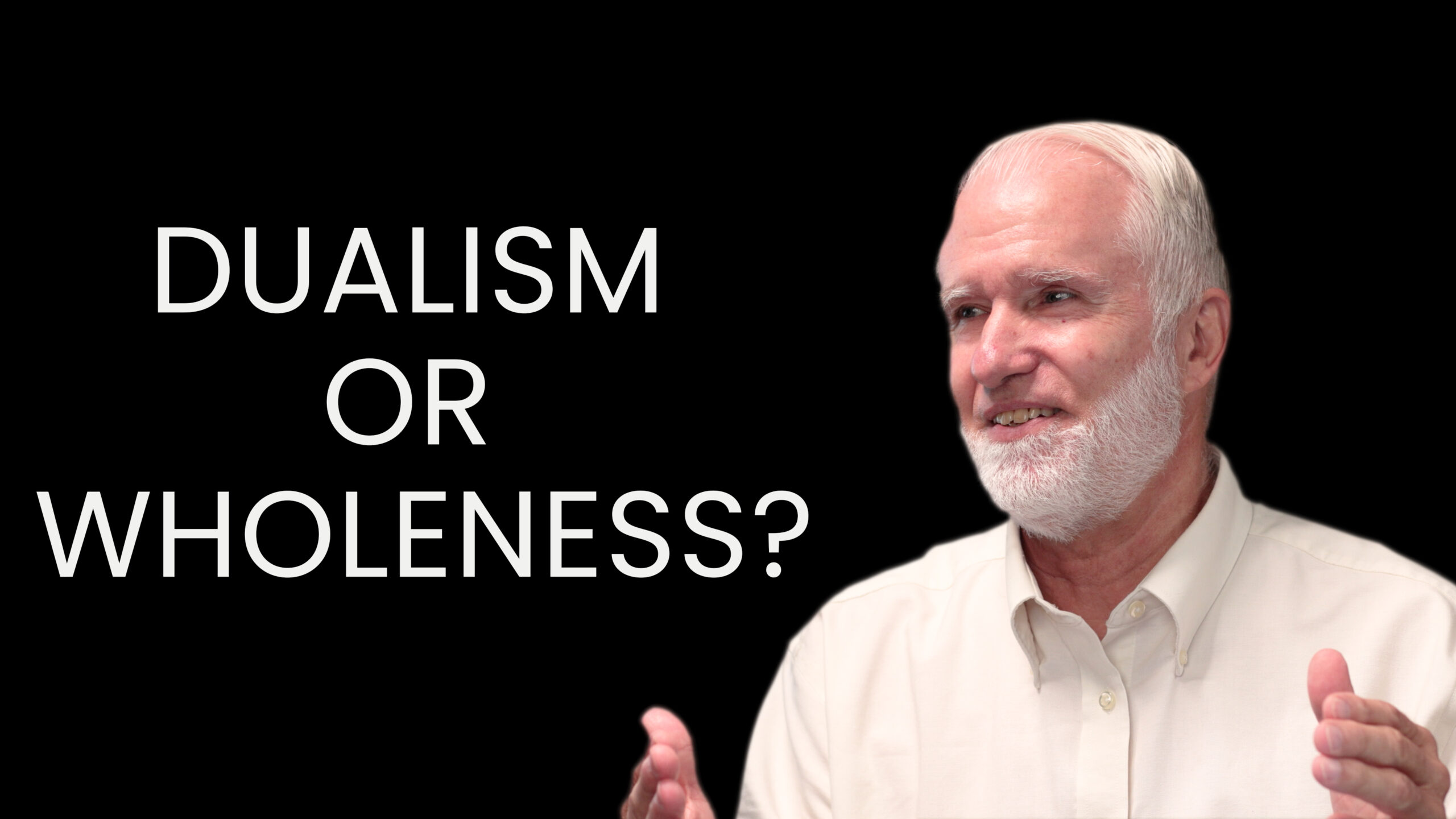Business People among God’s “Servant-Managers”
(Business as Stewardship Part 1)
This is not an essay about how to handle profits that may be gained through business. Of course, if you do own a business that generates large profits, that does result in responsibilities to use that money well, but that is not the subject under discussion. Rather, the question is what does it mean to be a steward of business giftings and abilities, and of business roles and opportunities?
In my January essay on this blog, I examined the New Testament concept of being a steward (household manager, servant-manager) in more detail. This month’s post has two parts. In this first part, I will recap some of that biblical discussion, focusing on business applications, and encouraging business people to recognize themselves as servant-managers of both a set of giftings and abilities and of certain roles and opportunities. In part two I will reflect a bit more specifically on stewardship in relation to job creation and business investment, as well as on the general mindset of the business steward.
The Greek term oikonomos refers most directly to a slave who played a managerial role within his master’s household. The New Testament makes frequent reference to the oikonomos (steward, household-manager, servant-manager) to show Christians how to live. The parable of the faithful and wise manager in Luke 12:42-45 shows the structure of stewardship. As a steward one has:
- Someone they are responsible to (human master, God)
- Something they are a steward of (wealth, abilities, leadership positions, etc.)
- Those they are responsible for (fellow servants, fellow believers, etc.)
One strand of being a servant-manager is using the skill, abilities, and possessions God has given us to benefit others, as indicated in 1 Peter 4:10-11.
As each has received a gift, use it to serve one another, as good stewards of God’s varied grace: whoever speaks as one who speaks oracles of God; whoever serves as one who serves by the strength that God supplies—
God gives different skills and abilities to different people for the sake of all. So, the first strand of business as stewardship is the recognition that God provides for human needs by distributing different sets of skills and abilities to different people. The skills that make one good at running a business are among those, and if those are the skills you have received from God, they were not given for yourself alone.
Another strand of being a servant-manager is faithfulness in positions of authority and leadership; the servant-manager in Jesus’s parable had a certain amount of control over his fellow servants. Elders and overseers can be called God’s stewards because of their leadership and managerial role in the church, the household of God (Titus 1:7). Business too, especially in large and well-established businesses, creates positions and roles that exert considerable power over others, and that must be stewarded to benefit those under one’s charge.
When we think of good stewardship, we might think of things like, generosity, frugality, miserliness, carefulness, or shrewdness. Some of these form part of the biblical picture; others distort it. Fundamentally, stewardship is not just about giving or saving money, but about using our abilities and our roles to benefit those whom God intends for those abilities and roles to bless.
Business as Gifting and Ability
What do we mean when we speak of distinctive business skills and opportunities? After all, businesses engage in very different tasks. Some clear land, some build houses, some raise cattle, some service computers, some build cars, some distribute risk through insurance, some help other businesses with marketing. What do these businesses have in common that makes them businesses? And what is the difference between being a businessperson in one of these entities and working in one of them as a dozer driver, electrician, cattle hand, robot programmer, graphic designer etc.?
One way to approach the distinctive focus of business skills is to think about the nested skills and abilities needed to create a house. I will use building a house as an example. Imagine several eager workers standing beside pallets of blocks near a prepared footer. They have the ability to move these blocks, but moving these blocks will do no good unless someone is there with the skill to assemble these blocks into a wall around the crawlspace. The simple action of moving blocks does not accomplish its goal without the coordinating skill of a mason to produce a wall. In the same way the work of laying a block wall can only accomplish its goal if it is directed by a builder who has a plan to build an entire house on that foundation. The coordinating skill of the builder determines the kind of wall and the location of the wall that can contribute to a well-built house. Otherwise, moving and laying block would be wasted effort rather than profitable work.
Business skills provide another essential level of coordination. If a builder creates a fine house, but it is not valued highly enough to pay for materials, pay all the various workers, and, at a minimum, sustain capital, the result will be a degree of wasted effort and unprofitable labor. Producing a house does no good if a house is not needed, and it does but limited good if a house is not needed as badly as other things workers could have produced. One of the primary functions of the business person is to direct work and the use of resources toward products and services that people value. More specifically the business person finds and takes opportunities where people are willing to pay enough for the goods or services provided that a profit remains for the business after paying all expenses.
Not all matters or decisions should be left to business criteria. Some profitable ventures should be avoided, because the “good” or “service”that people would gladly pay for is actually harmful or evil. And some needs in life are better provided through non-profit organizations or taxes and governments. However, for large swathes of life, business people with a keen eye for profits and losses do a great job hiring people for good and beneficial work to supply human needs. The stewardship-minded business person sees what he does as one skill and one role among the many that God has provided for the flourishing of humanity.
Business as Opportunities and Roles
While we have emphasized business as a skill, it is also a societal role. When an entrepreneur has been successful, a business structure is developed that shapes work and commerce. Those managing this structure may not have the same insight and abilities as the founder, but they have similar responsibilities. A business can shape life for a number of people purely because it exists and manages to survive. Running a business involves choices that affect customers, employees, and even outside parties to various degrees. A businessperson may be quite literally one who gives fellow servants their portion of food at the proper time (Luke 12:43). Being an owner and manager of a reasonably successful business also opens opportunities that may not be available to others. One may have access to capital, familiarity with the community, business infrastructure, etc. that allow him to pursue new ventures or address problems. The stewardship minded business person will feel a certain weight to these opportunities and roles and a desire to perform them well for the sake of various stakeholders.
Tags:












A COVID-19 Economy and Stewardship. – Anabaptist Perspective
5 years ago
[…] events. The second part of the “Business as Stewardship” post will be released next week. (Part 1, Part […]